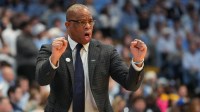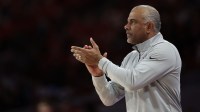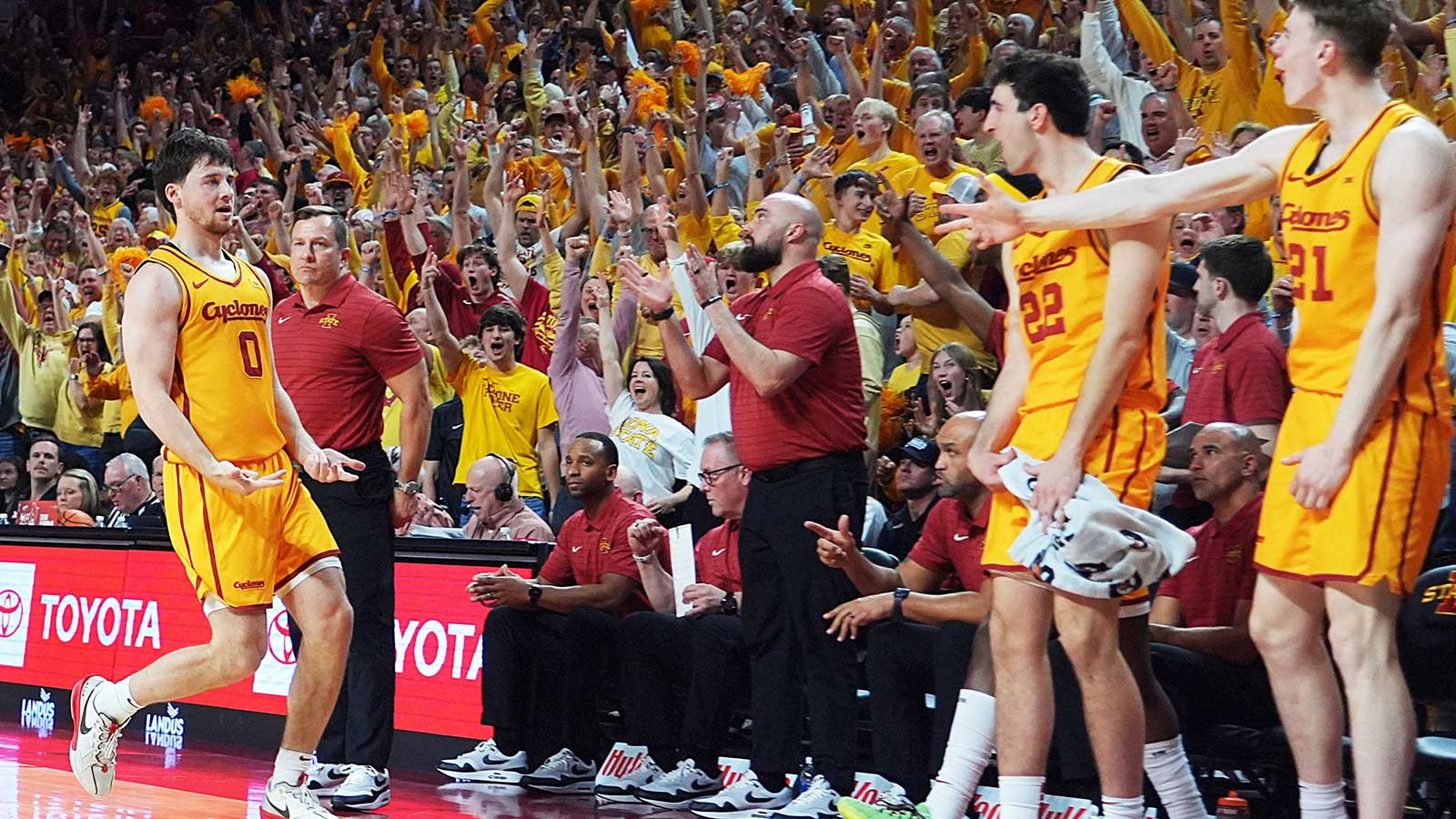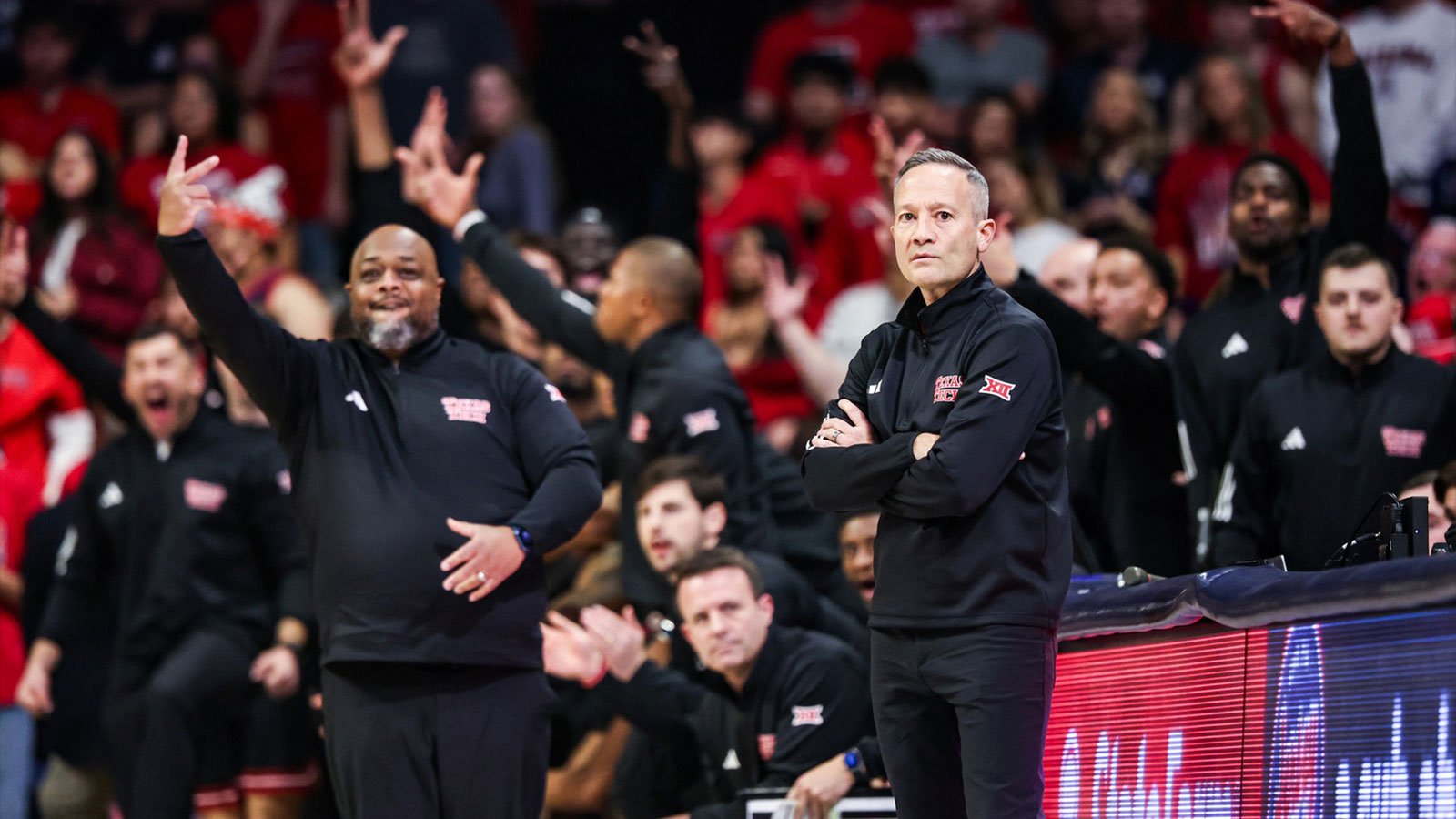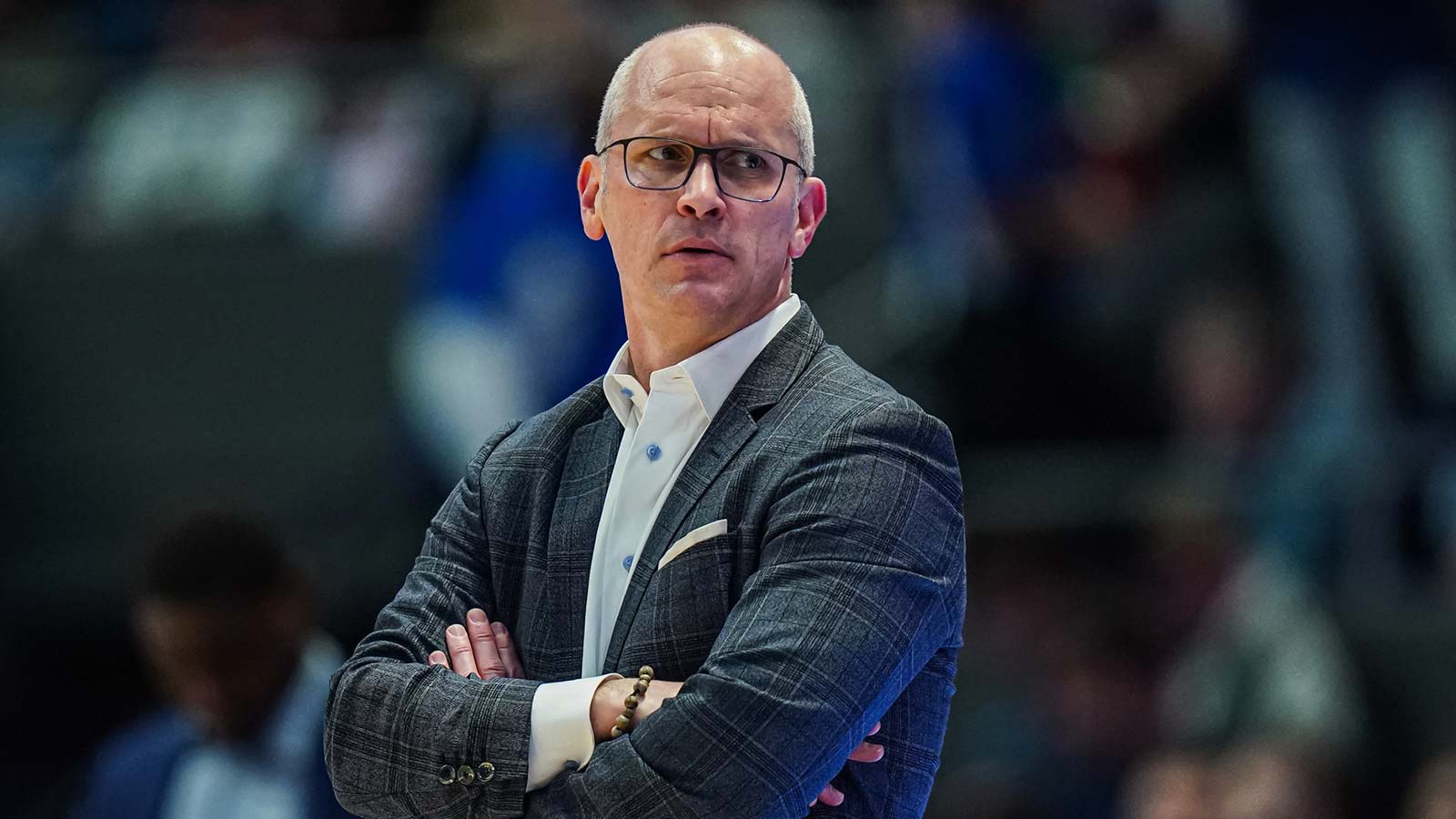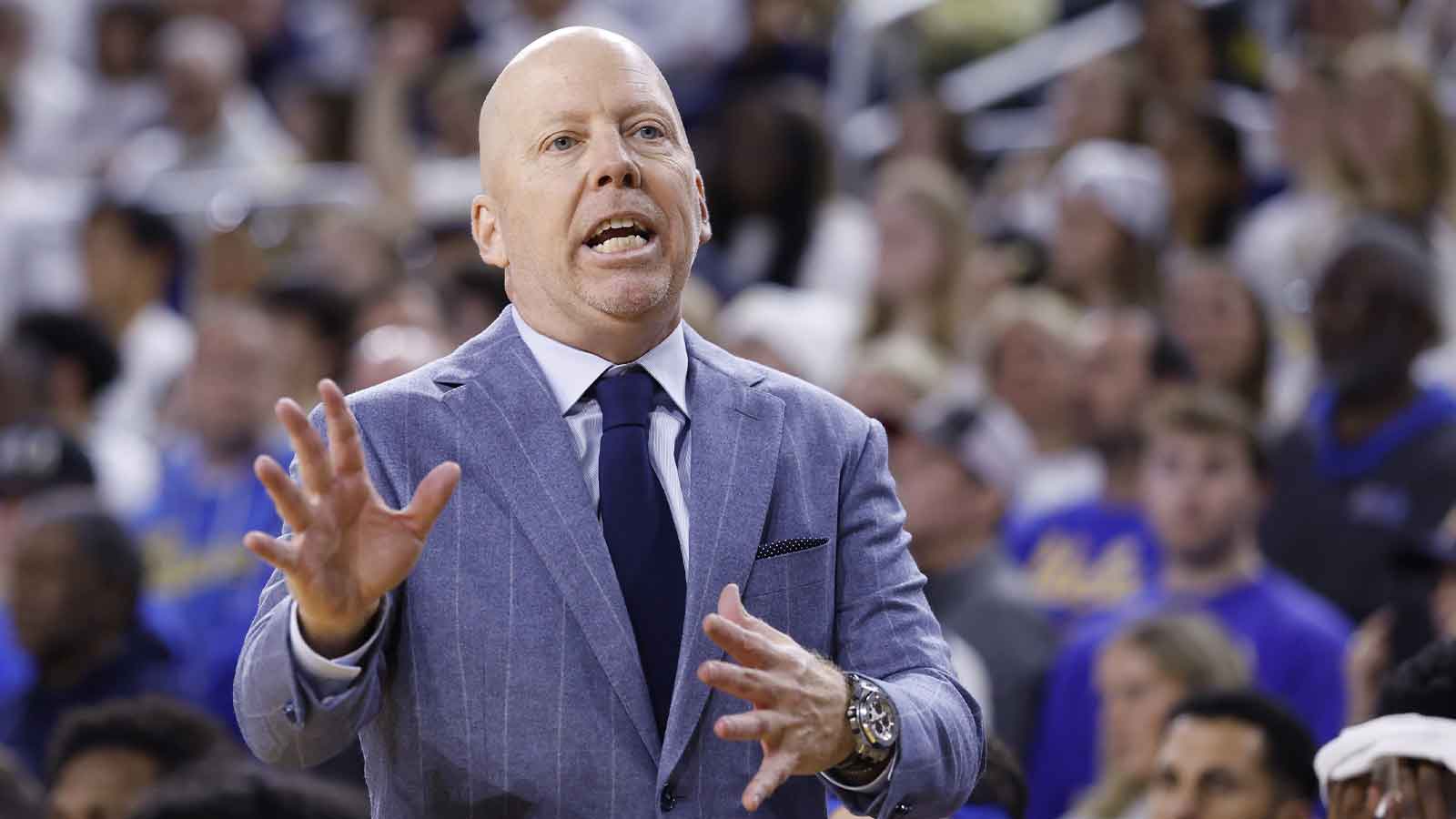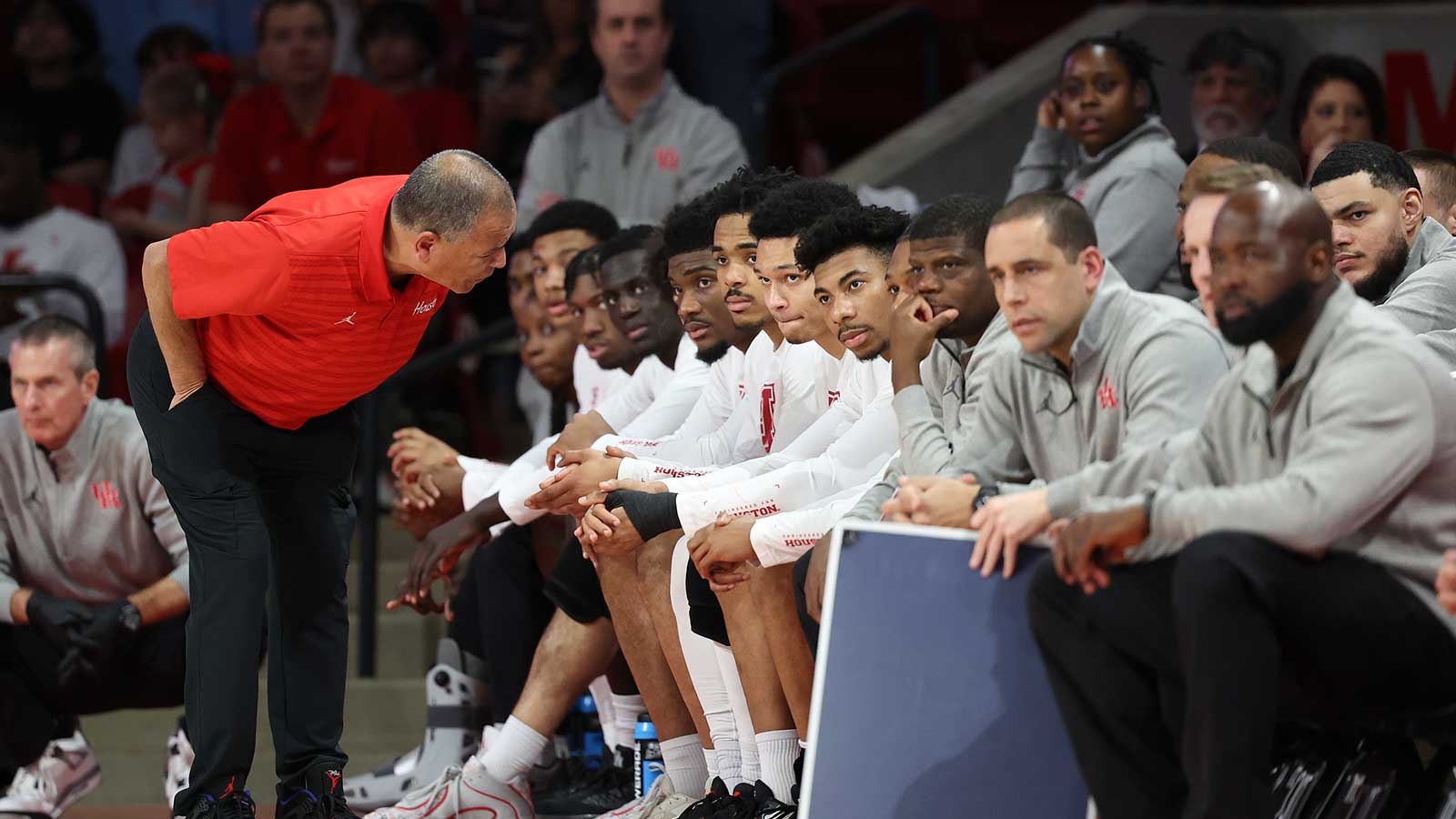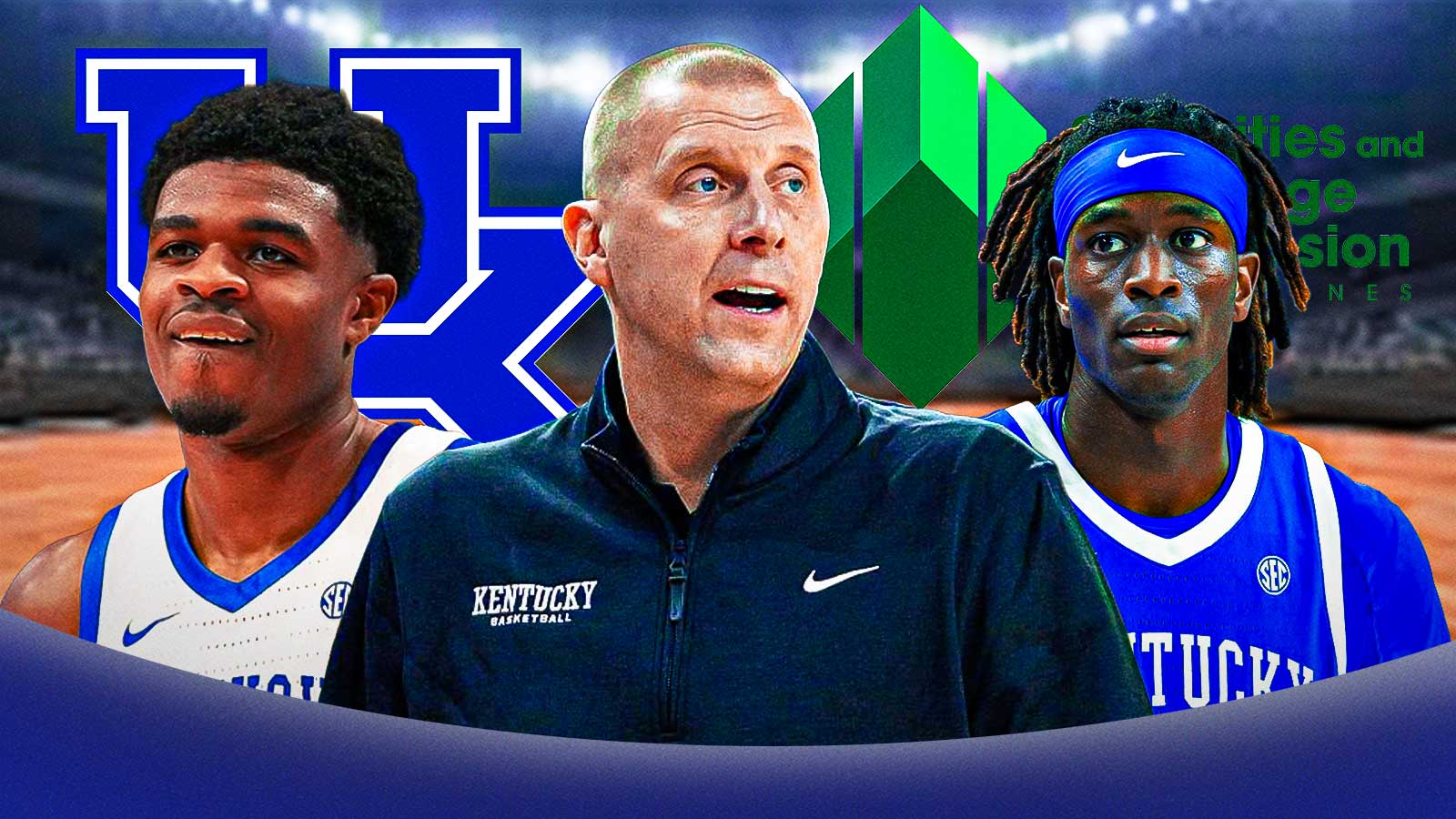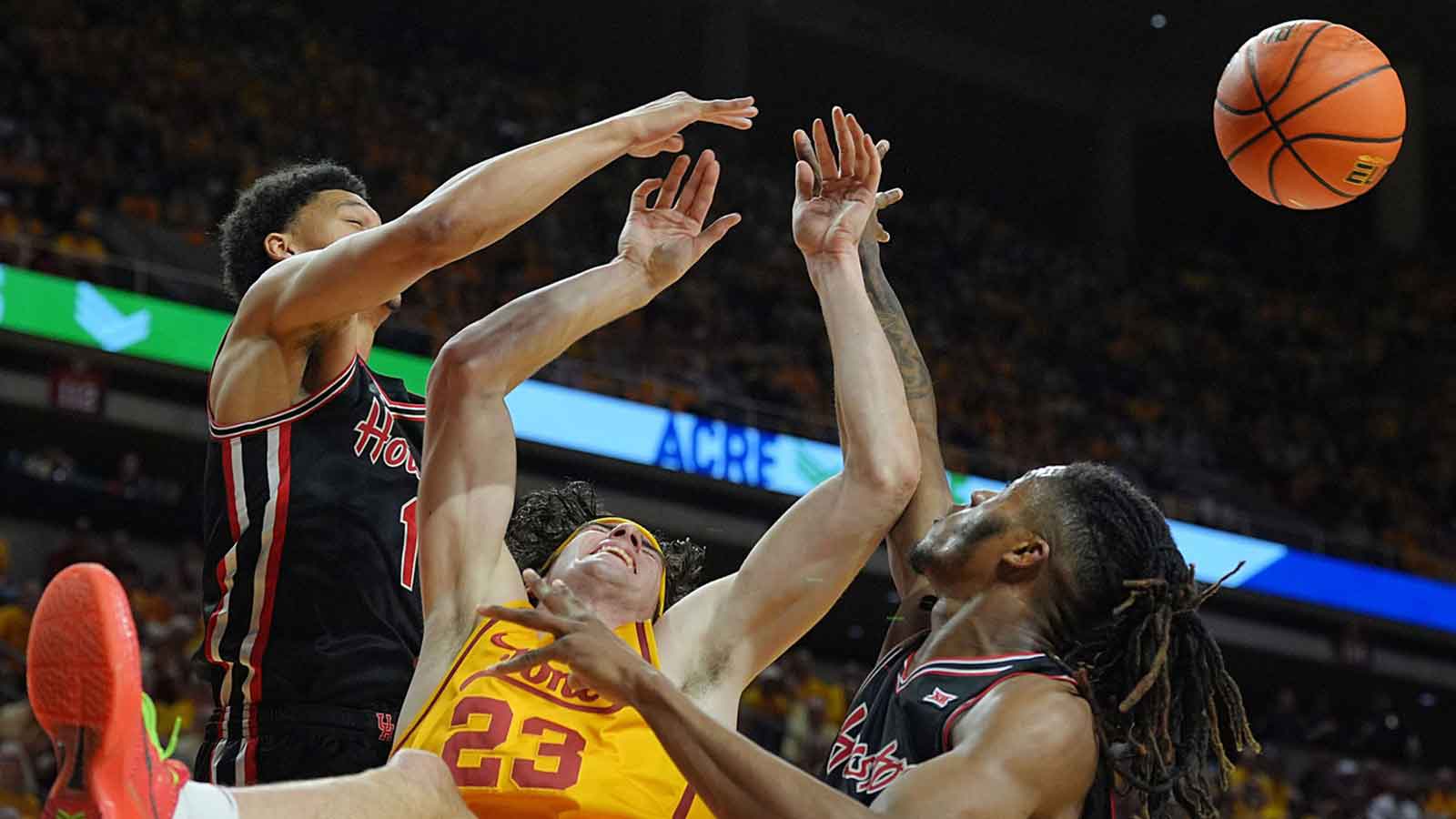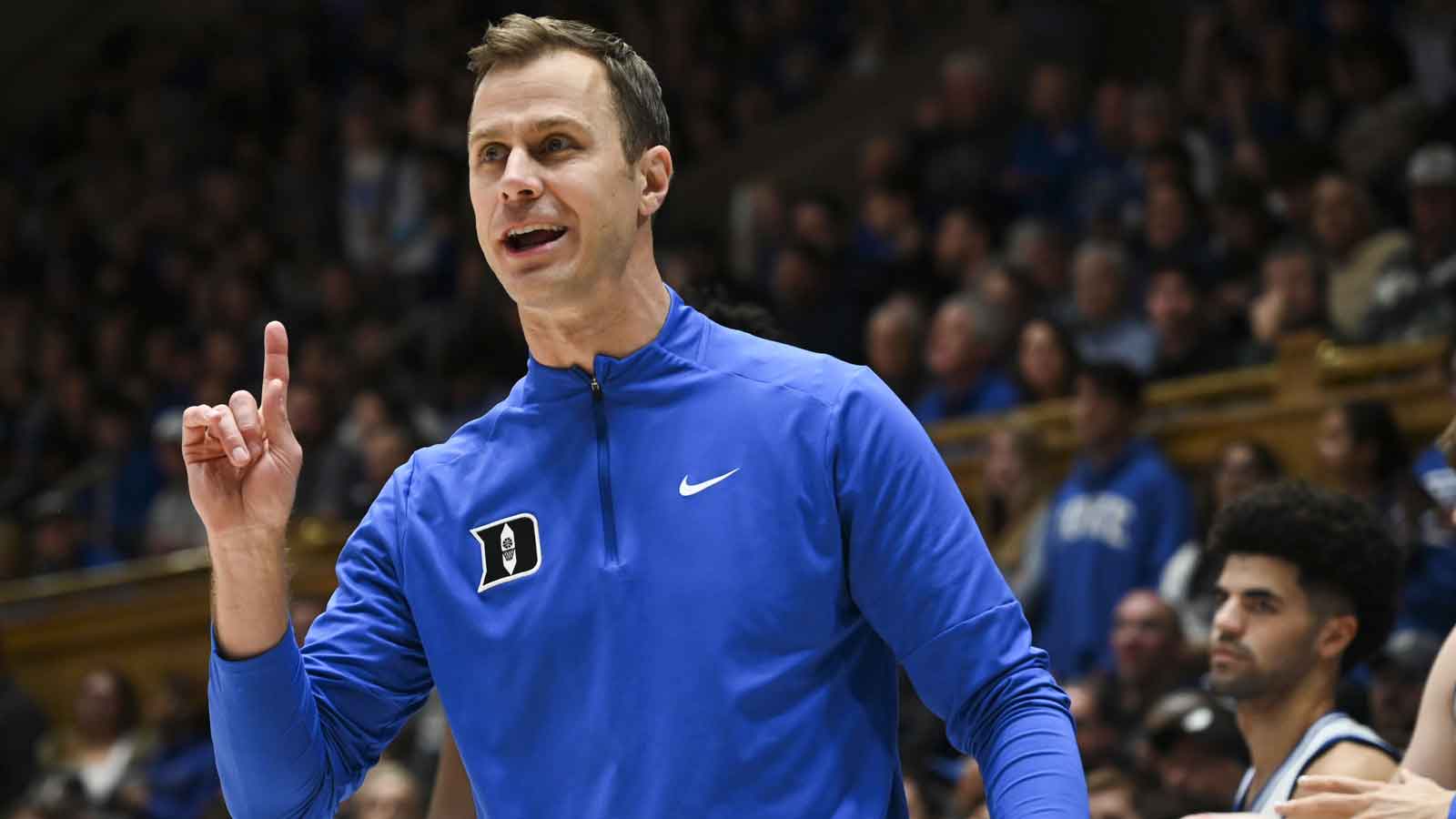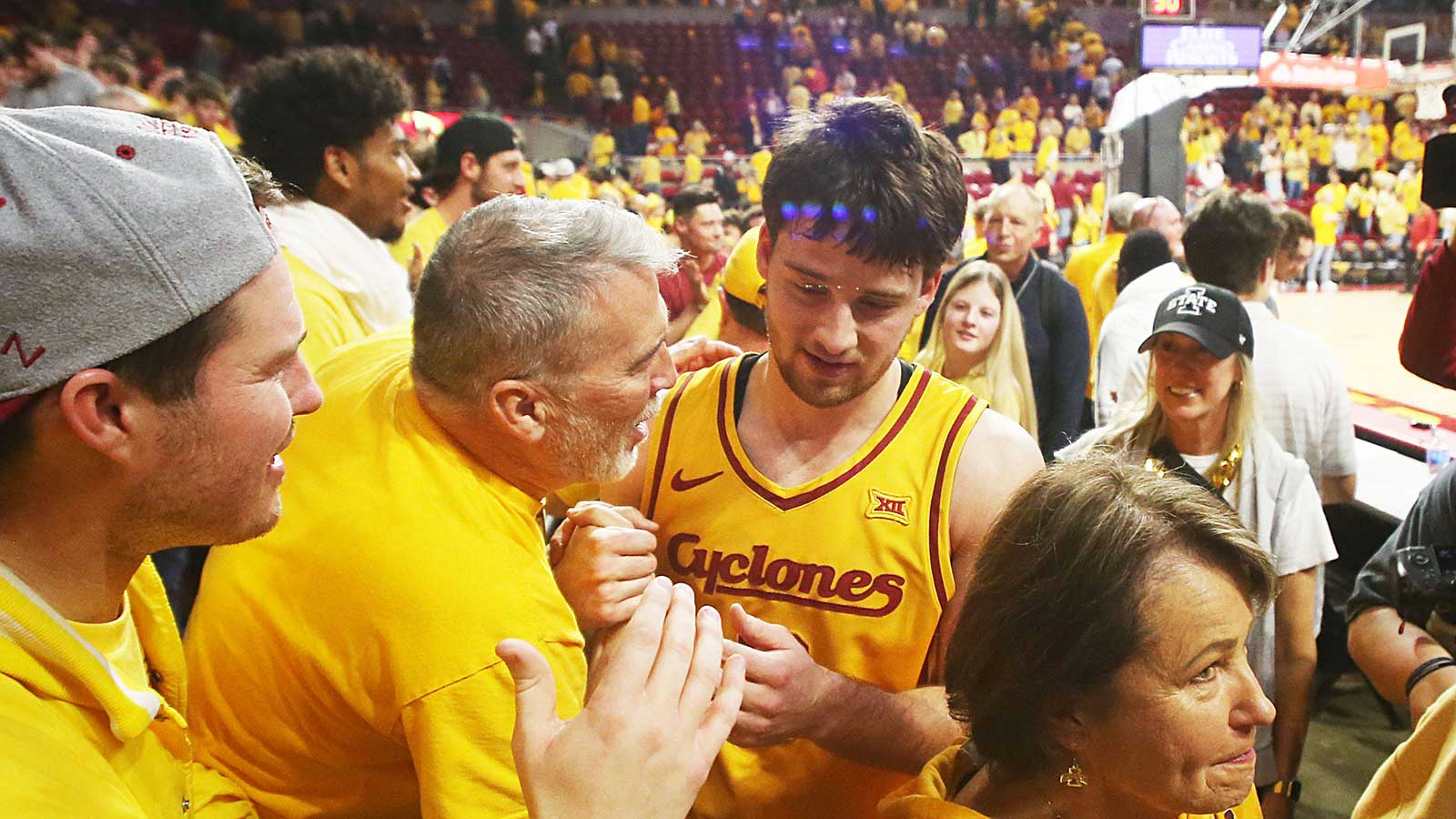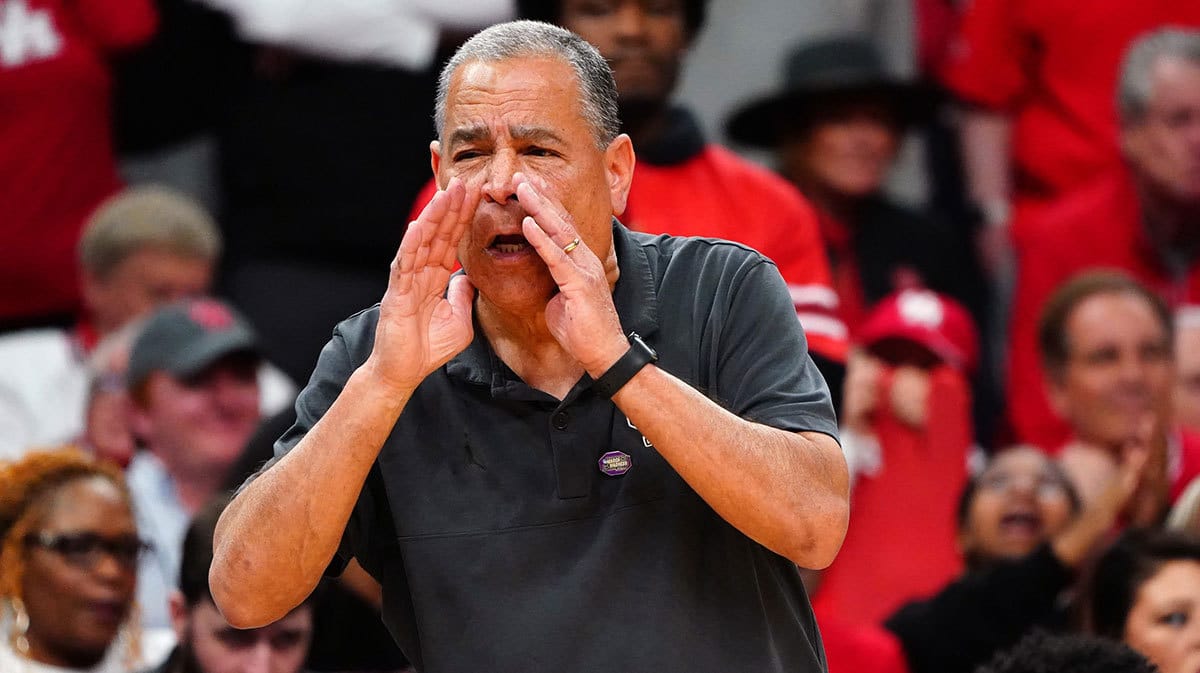The Liberty Flames earned an automatic bid to the NCAA Tournament on Sunday, defeating the Lipscomb Bisons in the Atlantic Sun Tournament final last season.
Over the course of the next week or so, carefully curated puff pieces will be written about the program. Stories involving players, head coach Ritchie McKay, and just about everything and anything that has nothing to do with the university itself.
Why? At best, Liberty is polarizing. At its worst, the school represents specific abominations in our society and its political discourse.
Jerry Falwell Jr. — yeah, that guy — is the school's president. He is known for a lot of things, but primarily being the son of Jerry Falwell Sr. Like a lot of people who believe they hit a home run, Jr. was born on third base, gifted the presidency of the school after his father's passing in 2007. Hooray, nepotism.
Falwell Jr. has a spotty record when it comes to most situations involving compassion and general decency. He's one of those people who believe in the idea of giving good guys more guns, once stating the 2015 San Bernardino shooting would have been prevented if “some of those people had got what I have in my back pocket right now.”
A Rambo cosplayer, for sure.
He closed that message by stating, “Let’s teach them a lesson if they ever show up here.” Mind you, this was being said at a Liberty convocation service (a mandatory-attendance gathering for students two times per week).
Falwell has also backed Donald Trump several times, notably comparing the President to Winston Churchill for some reason. The Liberty president is often credited as a main driving force that connected white Evangelical Christians to “45.”
He's also a man who spends a large portion of his time on Twitter replying to tweets involving Trump. Not just ones he was also mentioned in, but nearly any he feels are worth his time.
Despite his harsh words after San Bernardino, he reacted differently to the white supremacist attack in Charlottesville. Instead of yelling about good guys with guns, he instead backed Trump's initial reaction to the event, in which the President spoke about “both sides.”
“You know, he's a little abrasive sometimes in the way he says things, and we have some thin-skinned Americans sometimes who ignore the substance of what he's saying because they're put off by his demeanor,” Falwell said. “And I think we need to grow up as a people and stop being so easily offended.”
In that same radio hit, he also said it's offensive to suggest Trump is a racist.
You nuts attacking @realDonaldTrump for securing the border need to show me where Jesus told Caesar how to run Rome. Jesus taught personal charity but went out of His way to say render unto Caesar that which is his. Jesus never told Caesar to let barbarians illegally enter Rome.
— Jerry Falwell (@JerryFalwellJr) March 9, 2019
Did he just compare people who would live on the opposite side of this bizarre border wall to barbarians? You bet your sweet ass he did!
But hey, why view an entire university for the way one man thinks?
Liberty functions as a school much in the same way a pastor does to his flock. It's not so much about learning whatever can be learned as it is preaching about specific things the university wants its students to know.
Operating as a right-leaning Christian university, Liberty often promotes and teaches specific ideas on gender roles and abortion. Here is where church and politics would usually separate: It would be hypocritical to bash someone for having different religious beliefs, but both the school and Falwell are an extension of each polarizing subject. For every tweet in which Falwell conjures Jesus's name, there's even more subject matter in which he advocates for specific Republicans in a desire for political reform. Religion as nonpartisan advocacy for causes more than parties? That ideal isn't found in Falwell's public commentary as president of a Christian university.
As for the school itself, Liberty is sometimes cited as a bastion of the Christian Right. It also once denied tuition discounts to LGBT military spouses. To be fair, the school will take money from gay students… it just won't allow them the same discounts they give heterosexual students.
The school's campus features the National Civil War Chaplains Museum, literally the only museum of its kind, designed to “educate the public about the role of chaplains, priests, rabbis, and religious organizations in the Civil War; to promote the continuing study of the many methods of dissemination of religious doctrine and moral teachings during the war; to preserve religious artifacts;and to present interpretive programs that show the influence of religion on the lives of political and military personnel.”

Liberty has an honor code, not unusual for plenty of schools across the country. The school's code prohibits premarital sex, private interactions alone between members of the opposite sex… and attending dances (because Footloose apparently needs yet another reboot).
The good news? A few years ago, the honor code was revised so people in their late teens and early 20s could watch R-rated movies without facing repercussions.
A tax-exempt school, Liberty's business model is to rely on federal assistance. In 2010, it was reported that the university received approximately $445 million in federal financial aid money. The News & Advocate, a local news website, was later blocked access to the Liberty's campus after being one of the outlets to report on the aid money. Falwell Jr. claimed the blocked access had nothing to do with it.
The school has a history of blocking any attempt at speech or activism that goes against its ideals. In 2009, Liberty stopped recognizing LU's Democratic Party student group. The university said this was because the Democratic Party platform goes against the school's conservative Christian principles.
“They really are great kids and good friends of mine,” said Falwell Jr. in 2009. “It's just an issue of what Liberty's mission is.”
And here comes the unsurprising plot twist:
“Free speech and intellectual diversity are two of the most important pillars of a college education. That’s why I urge every college and university in the country to go further than just complying with President Trump’s upcoming EO” @JerryFalwellJr https://t.co/I5mBQqhji6
— Hannah Blair (@hannaheblair) March 3, 2019
But how much should the coaches and players on the Flames' NCAA Tournament team be held accountable for how Liberty and Falwell act outside of their bubble?
It's a question that seems far more complex than it should be, since people often attempt to rationalize the “good people” who either support or work for outlets, politicians, whatever that promote hate, bigotry, misogyny or general harassment.
It could — and should — be argued that people who personally profit and benefit from a larger cog, especially while voluntarily doing so, should be held as accountable as the entity they're representing. A person can speak against individual disagreements with their employer, but the words eventually ring hollow as the person continues to collect a paycheck from the wayward cog.
As for the student, despite enrolling voluntarily, a much lower standard for accountability feels warranted. They are kids, after all. For student-athletes, those vying for a limited amount of Division I basketball scholarships, it begins to become even more complex. What ethical obligation, if any, comes with taking a scholarship from a university such as Liberty? It probably depends on each individual athlete's options, as well as the actual level of knowledge s/he has when accepting it. Either way, it's clearly not on the level of a power program enabling Liberty's growth, using the platform of sports to spread its message.
In simpler terms, for those who are paying to attend Liberty, or earning a scholarship to play for the Flames, it's a moral conundrum. There's no easy answers or blanket statements readily available.
None of the above information changes the fact that the Liberty Flames earned an invite to the NCAA Tournament.
You know what? Forget what the headline suggests. Celebrate them how you want. Unlike the university or Falwell, I'm not here to tell you what to think. Make up your own mind.
–
Editor's note: This column originally appeared on a now defunct website owned by the author.
Joseph Nardone has been covering college basketball for nearly a decade for various outlets in a variety of ways. You can follow him on Twitter @JosephNardone.




